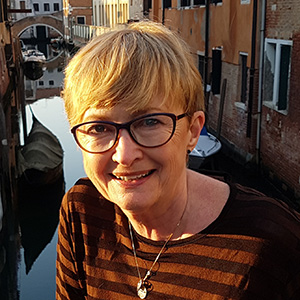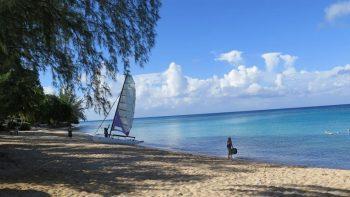Germany offers a host of historic as well as ultra-modern attractions and current lifestyle trends for clients, as a group of Toronto media learned on Mon 24OCT at a trade media event at 1 King Street West in Toronto.
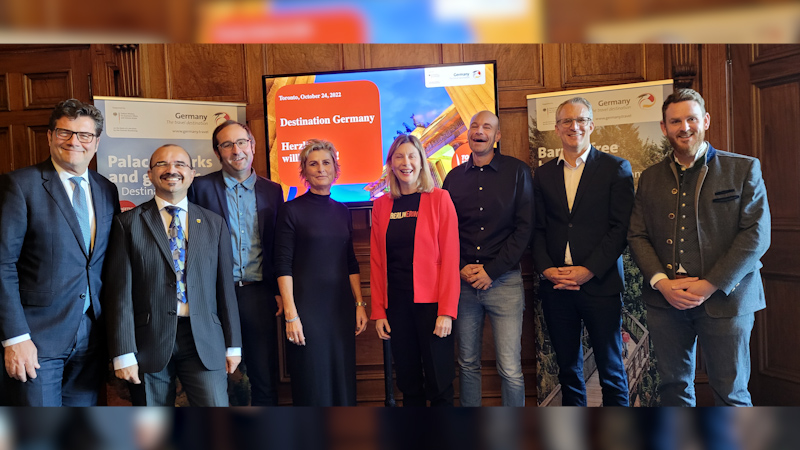
“Sustainability, health, and a balanced lifestyle are all a priority,” said Anja Brokjans, Director Canada for the German National Tourist Office. And representatives of six cities and regions, hot off a trade mission to several US cities, confirmed that respect for the environment is key today, and in future. According to the Tourist Office’s Feel.Good campaign, unspoiled natural landscapes, responsible hosts and fresh and surprising cuisine – not just bratwurst and sauerkraut! - and are all part of the experience.

There's ample lift from Canada with flights from YVR, YYC, YYZ and YUL and service is available on AC, LH and DE (Condor).
For getting around on the ground, Germany's regional trains might be an excellent option, making news this summer with incredibly affordable monthly passes that are now just €49 for a month (CDN$66). A steal indeed, considering gas costs about €2.30 (CDN$3.10) per litre.
The pandemic has seen a new interest in outdoor activities and wellness, and German tourism officials note that its infrastructure is robust, with 300,000 km of hiking and 76,000 km of cycling routes as well as 350 spas across Germany.
For clients who wish to immerse themselves in culture (and shopping), the legendary Christmas Markets are back for the first time since 2019, running from late November to Christmas Day in virtually every town.
New and Notable
Bayreuth (“bi-roit”), located between Berlin and Munich, is home not only to the annual Richard Wagner Festival beloved by music buffs from around the world, but is also now has the world’s first Urban Art Hotel and is close to the highest concentration of micro-breweries in the world.
Munich is celebrating the slow travel movement with 2 cross-city hiking routes, and in 2023 there will be 8 neighbourhood tours, complete with English-speaking guides.
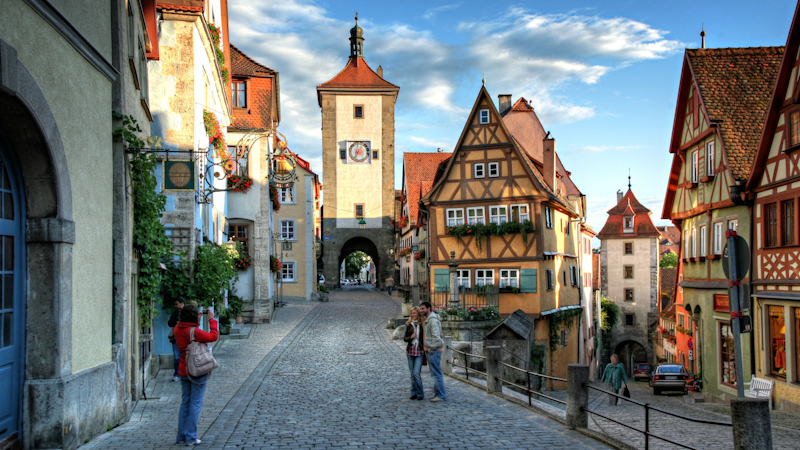
Rothenburg, located in Bavaria in southern Germany, is much beloved for its medieval city centre and, according to Robert Nehr of the local Tourist Office, “One of the most Christmassy towns – no need to set things up to be charming!” The city is home to some 60 hotels, mainly family run, and a famous store that sells 12,000 Christmas ornaments.
In southeast Germany, Saxony is home to a contrasting pair of attractions: the world’s largest motorcycle museum and a museum dedicated to the classical composer Bach.
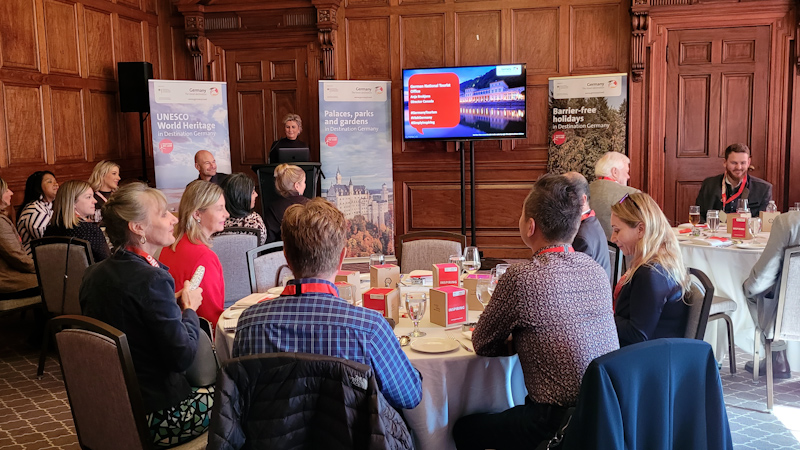
In the Bodensee region in the extreme south, clients can experience 4 countries in one day, travelling on Lake Constance, where Germany, Austria and Switzerland meet, plus nearby petite Liechtenstein (a microstate home to some 40,000 inhabitants). Or view the region by air on a 45 minute zeppelin tour.
And Berlin is a great destination for your hungry culture-driven clients, thanks to it 25 Michelin-starred restos (including one which is desserts only), 3 opera houses and the eye-popping Palast Berlin, an evening combining Cirque du Soleil, Las Vegas and Cabaret.

